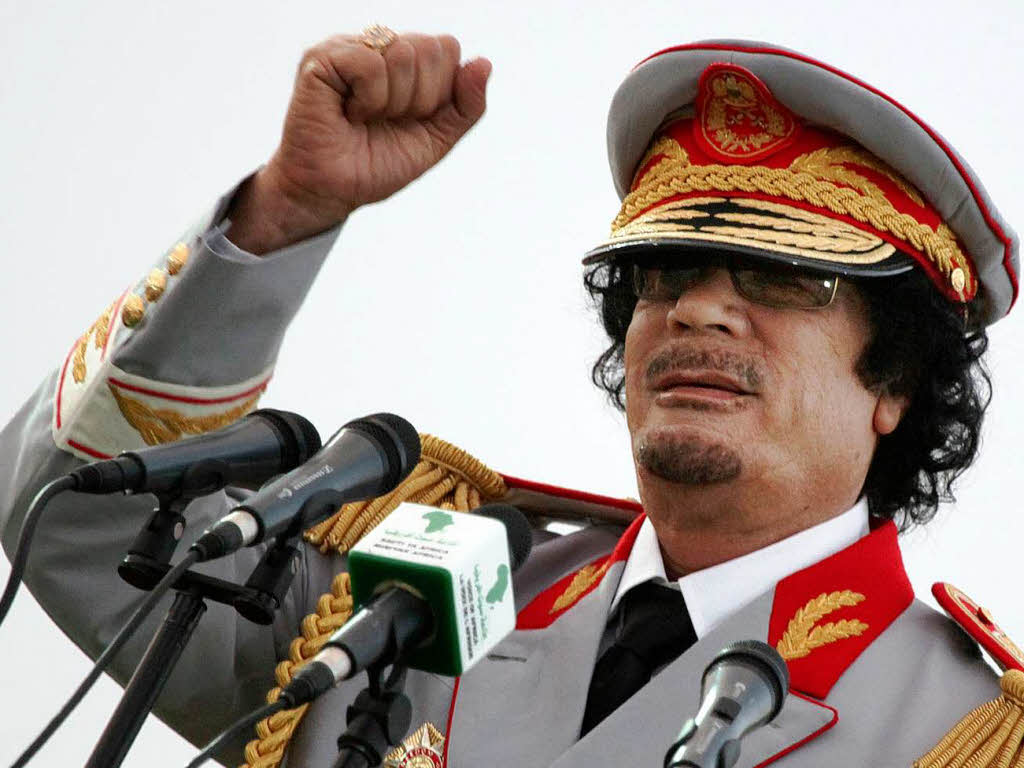
It is hard to imagine that on May 27th, 1935, Tripoli was the venue of one of the fastest motor car road races in the world, The Grand Prix of Tripoli. The great North African Colony of Italy hosted the world’s best race drivers and the most advanced minds of motor engineering in the world. For its prestige, the race was graced by the famous Italian Air Minister, Marshal Italo Balbo (allegedly the best looking man in the Italian army) who was now the Governor of Libya among other dignitaries from Europe. German driver Carraciola would win the race in his Mercedes at a then remarkable speed of 124 MPH. Two years later Benito Mussolini the Italian dictator would himself pay tribute to the city in Imperialistic grandeur.
Today, however, Tripoli is a far cry from that glamour witnessed on this imposing city, 76 years ago. It’s a city under siege. Its haunted streets crumble following months of bombings by NATO airstrikes. Residents go without electricity, running water and even media broadcasts. Infrastructure has been heavily damaged and lives disrupted.
How did Libya get here? Well, it was in 1969 that Libya’s destiny took a new twist. A young soldier ascended to power through a bloodless coup d'etat. Muammar Gaddafi had arrived. He quickly assumed the title of Colonel, in honor of his mentor, Colonel Gamal Abdel Nasser of Egypt. He took hold of Libya’s control through military powers promising its citizens a life of freedom and abundance, free of western oppression. Over the years, Col. Gaddafi emerged as one of the most controversial leaders in the world and became a clear headache for Washington over his political ideologies that demonized the west. Like fellow authoritarian rulers in developing countries, Gaddafi, despite attempts to oust him, survived several US presidents (seven – from Nixon to George W. Bush) and is the longest serving ruler in Africa. In the 1980s he retorted to sponsoring terrorism notably the infamous Lockerbie bombing of a Pan Am airliner over Scottish airspace which killed 270 people. He continued to be actively involved in conflicts in Africa and called for the unification of Arab countries and recently lobbied for the formation of a United States of Africa.

Col. Gaddafi (middle in military uniform) and President Abdel Nasser of Egypt in 1969
Gaddafi’s best days may well be behind him. Speculations are rife that the Colonel’s days are coming to an end. There are high expectations that the world’s ‘axis of evil’ is slowly crumbling with the regime of Libya’s long-serving dictator out of the way. However, there is little to celebrate here. Gaddafi maybe gone but the country remains largely polarized and badly damaged. NATO has been supporting the rebels, arming them with better military equipment and providing intelligence services. But it remains critical that the west learns from history, notably past military conflicts in Afghanistan and Iraq, and even the US-backed ‘civilian’ rule of the Shah in Iran in the 1950s-70s. The same forces that are allies today might come to haunt them in the future. In Iran, the US presence greatly undermined the Shah’s rule which eventually led to a revolution in 1979 giving way to the current regime notorious for its quest for nuclear weapons. Besides, I would expect that NATO will engage in reconstruction of infrastructure in Libya to appease the masses if not for the genuine desire to see a Libyan democratic state prosper. It will be an expensive task especially with a battered global economy. Interestingly, it is the countries whose economies are sluggishly growing that are in the fore-front of this expensive campaign. The boomers with ridiculous growth spans like China, Russia, Brazil or India will most likely stay out of the way. And then there is of course Iran and Syria waiting at the end of the tunnel. No one is talking of N. Korea for now; at least China and Russia have interests there and therefore not an immediate concern.

Col. Ghaddafi inspecting troops with Italian Prime Minister Silvio Berlusconi in Rome 2009
Lest we forget, Libya is no Tunisia or Egypt. Its tribal differences will continue to emerge and distrust will certainly undermine any central government’s ability to govern as it stands out right now. If anything, there will have to be negotiations for peace to be realized. Political assassinations cannot be ruled out with forces loyal to both sides of the conflicts claiming true allegiance to the nation and legitimacy in running this oil-rich country. Tough times lie ahead for Libyans. This once prosperous North African state now braces itself for a potential civil strife that could wipe out the gains of decades of economic boom albeit political oppression. It could be another sad case replicated so many times in Africa, where countries rich in minerals and oil, fall into the Abyss of civil war and foreign encroachment. Angola with all its oil wealth was embroiled in a civil war for almost 30 years, Sudan for over two decades; Nigeria is constantly on the verge of tribal wars vis-à-vis the fact that its people remain impoverished despite all the oil production.
No one can really say what happens to Libya but the rebel-led regime clearly has a huge burden of emerging behind the shadows of western powers and demonstrating they are in fact looking after the Libyan people and not Western interests. Besides, the UN assembly will definitely be a dull circle without the flamboyance of the Libyan dictator and his free flowing robes that signified power, defiance and absolutism. For now, he remains in hiding wondering how the world closed in on him so fast. We do not know of his whereabouts nor his famous tent or even that of his voluptuous Ukrainian Nurse.
No comments:
Post a Comment